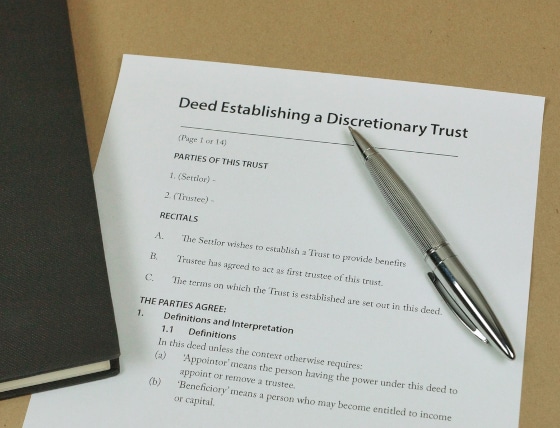For some time now some Trusts have had to be registered with the Inland Revenue on their creation, usually those which are immediately recognisable as such, like a Discretionary Trust, created either in a Will or by a lifetime Deed.
This alerted the Inland Revenue that a Trust was running and that an annual Tax Return would be required to determine any tax payable by that Trust.
Discretionary Trusts, for example, pay tax at a higher rate than an ordinary tax payer.
How did Trust Registration come about?
The law was changed by the Money Laundering, Terrorist Financing and Transfer of Funds (Information on the Payer) Regulations 2017 and the idea of an Express Trust was created. An Express Trust can be created either by a document created in the lifetime of the person creating it (the Settlor) or by a Will to take effect on death.
There is a far wider definition of Trusts that need to be registered than was previously the case. In fact, almost any kind of provision made in a Will or lifetime deed will result in an express trust being created which needs to be registered, regardless of whether or not tax would be payable.
The law now requires that all such Trusts, whether created after the change in the law or not, are registered no later than 1st September 2022. Any new trusts created after that date have to be registered, generally within 90 days of creation.
Does Trust Registration apply to a Trust created in a Will?
There are some exemptions. For example, if the Trust is created in a Will then, providing the estate is dealt with within two years of the death, the Trust doesn’t need to be registered (unless it is liable for tax). However, if the administration of the estate goes beyond two years, then it must be registered as a Trust.
But if a Will provides that money for a particular beneficiary is to be retained for a certain period of time (for example it is very common to provide that the right to the money doesn’t vest in or belong to the beneficiary until he or she reaches 18), then that also must be registered regardless of whether or not tax is going to be due.
There are specific provisions for “18–25-year-olds” Trusts which were created some time ago. Whilst you can postpone the right to a beneficiary to get his or her entitlement from the Will up to age 25, you are still creating a Trust and that Trust must be registered.
What about Liferent Trusts – are they subject to Trust Registration?
For Spouses, where there is a house involved, it is not uncommon for the Will to state that on the death of the first of the joint owners of the property, his or her right to a half share in the property goes into a Trust (known as a “Liferent Trust”) with the surviving spouse or partner having the right to live in the house for the remainder of his or her lifetime but with the actual share in the property going to third parties (for example to children). Indeed, many wills are now being varied post death to included that.
Even though that would not give rise to tax being payable, it has to be registered as an Express Trust with the Revenue. In this case, within 2 years of the death.
Does Trust Registration affect Family Protection Trusts?
It is also not uncommon for someone to transfer their house either to their family reserving a liferent or to what is known as, a Family Protection Trust. Those actions result in the need to register the Trust within ninety days.
Moving forwards, most lawyers should be aware of the need to register a Trust on its creation but there is going to be an ongoing problem identifying Will Trusts or old Trusts which are still running and making sure that they are properly registered.
We are currently going through our records to see if we can identify any such Trusts and, hopefully, be able to contact the Trustees to warn them of their obligation and offer to help them to get the Trust registered if they want that.
What should I do if I am involved in a Trust that should be registered?
If you are aware of such a Trust yourselves, it is important that you contact your own Solicitor for advice on how to proceed with this.
We would be more than happy to help anyone seeking help to register their Trust with the Inland Revenue and if you want to do that, then you should contact Robert Westwood at Robert@cbcsolicitors.co.uk


